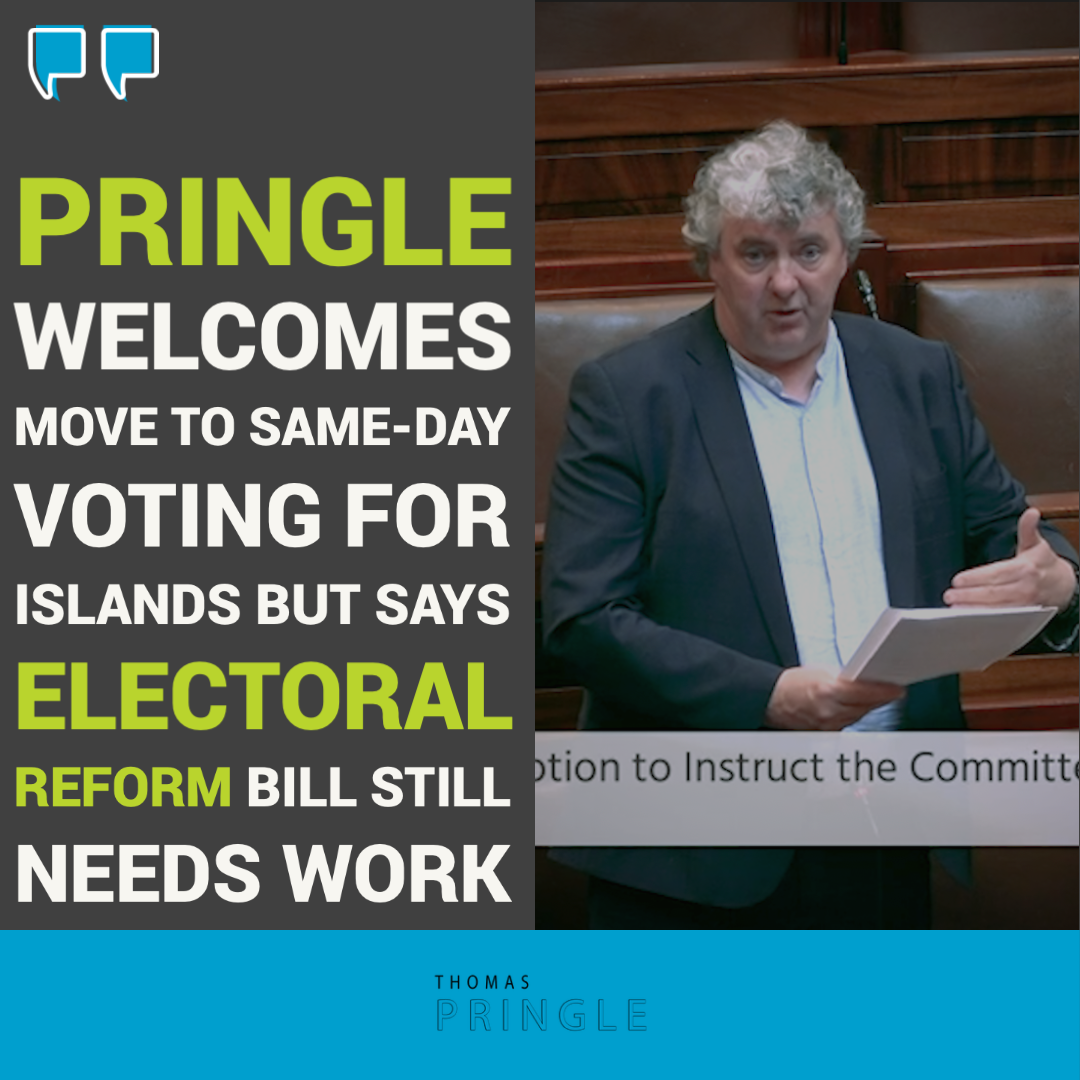- Pringle: We need a policy that recognises the importance of inshore fishing
- Pringle: Disabled people and carers face crisis of State neglect
- Pringle: Failed FF/FG housing policies forcing people to put their lives on hold
- Pringle welcomes Donegal council motion on Occupied Territories Bill: ‘We cannot stand by in the face of genocide’
Pringle welcomes move to same-day voting for islands but says electoral reform bill still needs work
- Updated: 1st June 2022

Independent TD for Donegal, Thomas Pringle, has welcomed Government’s intention to provide for same-day voting on islands, but said other areas of the Electoral Reform Bill 2022 still need amending.
Addressing the Dáil on Tuesday, Deputy Pringle said: “I would like to support the Government’s intention to provide for same-day voting on our islands in elections and referendums. This would affect many island voters in my own constituency of Donegal who have been advocating for same-day voting for a long time now.
“There is no reason why island voters should be forced to vote in advance. It is important that every voter is allowed to access all information on upcoming elections and referendums. This includes making sure that everyone has the ability to watch late debates and follow changing stories before casting their votes,” he said.
The deputy supported the Government’s intention to make amendments to the Electoral Act 1997, calling that “long overdue”.
Deputy Pringle said: “I would specifically like to support the amendment of Section 22 of the Electoral Act and I would hope that the government takes on board the amendments that have been put forward regarding the term ‘political purposes’.
“Unfortunately, the inclusion of this term has created very unfortunate unforeseen consequences. I was very disappointed to see that this was not addressed in the drafting of the Electoral Reform Bill 2022, and I urge the government to accept the proposed amendments to address this.
“A very important aspect of modern, democratic societies is ensuring that civil society has a voice and plays an important role in policymaking. To take this role away would be incredibly undemocratic and would only serve to weaken legislation in this country.
“However, as the law currently defines it, ‘political purposes’ actually encompasses human rights and social justice work. Shockingly, the inclusion of this definition in the Electoral Act 1997 has placed a ban on any group of citizens from raising money to campaign for a particular policy or to criticise the activities of the government.”
The deputy said: “Advocacy groups receiving donations and working on the ground should be able to speak out, advise and criticise government policies. Furthermore, we should actually be actively seeking to include those voices.
“Most often these are the groups that are seeing and experiencing the issues first-hand and they have played an incredibly important role in influencing policy in this country,” he said.
Deputy Pringle said a distinction must be made between community and advocacy groups and private sector influence, saying that was what was intended in the legislation in the first place.
The deputy said: “Advocacy must be supported at all costs, and we must do all we can to protect the rights of groups to continue their work, and so I sincerely hope that this particular amendment is accepted.”
Deputy Pringle said he supports the motion overall, but urged Government to facilitate committee work and amendments put forward by the opposition, saying they “have value and should be taken on board”.



